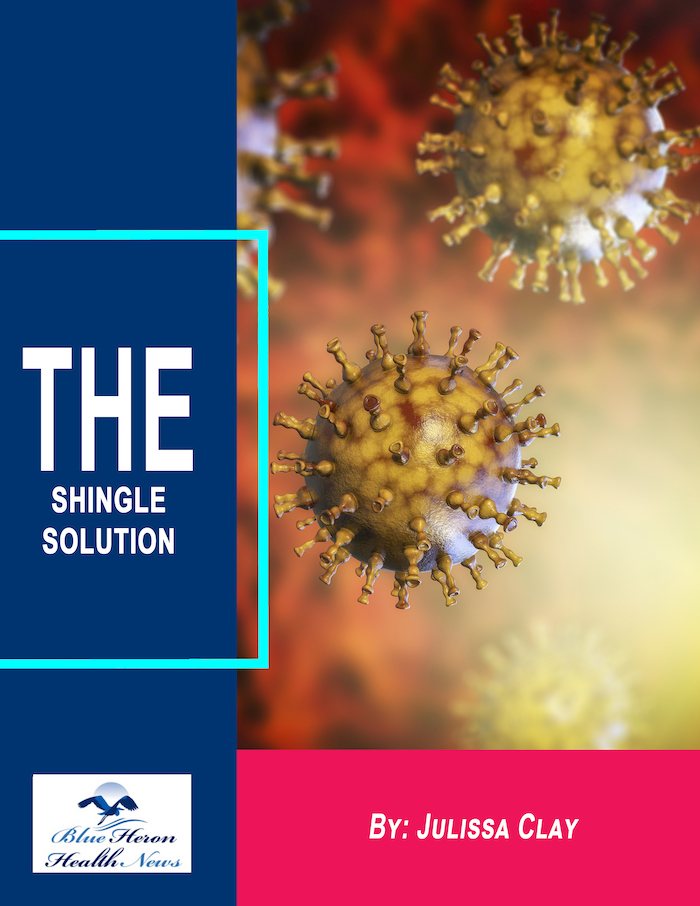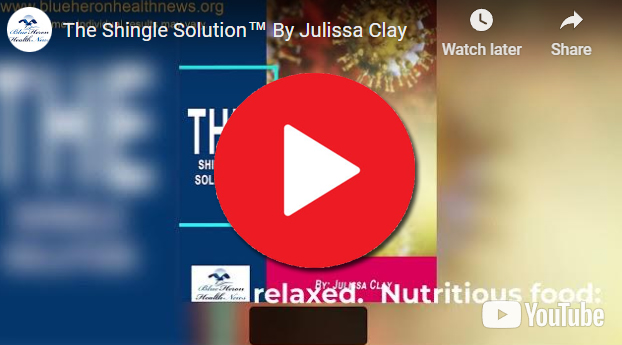
The Shingle Solution™ By Julissa Clay This eBook includes a program to treat the problem of shingle naturally. The author of this eBook, Julissa Clay, a practitioner in natural health, has killed the shingles causing virus completely to overcome the problem of PHN or Postherpetic neuralgia, one of the common complications caused by shingles. This program helps in melting PHN in a few weeks and make shingles a forgotten nightmare.
How can one prevent shingles-related complications?
Preventing shingles-related complications involves early intervention, proper management of the condition, and proactive measures to reduce the risk of severe outcomes like postherpetic neuralgia (PHN), eye complications, and secondary infections. Here are strategies to help prevent shingles-related complications:
1. Get Vaccinated
- Shingles Vaccine (Shingrix): The most effective way to prevent shingles and its complications is through vaccination. Shingrix, the preferred shingles vaccine, is recommended for adults over the age of 50 and for individuals with weakened immune systems. It significantly reduces the risk of developing shingles and the severity of symptoms if shingles occurs.
- Effectiveness: Shingrix is over 90% effective at preventing shingles and its most common complication, postherpetic neuralgia (PHN).
2. Early Diagnosis and Treatment
- Seek Medical Attention Promptly: If you suspect you have shingles, seek medical attention as soon as possible. Early diagnosis and treatment can reduce the severity of the outbreak and decrease the likelihood of complications.
- Antiviral Medications: Antiviral drugs, such as acyclovir, valacyclovir, or famciclovir, are most effective when started within 72 hours of the rash appearing. These medications can shorten the duration of the outbreak, reduce pain, and lower the risk of complications like PHN.
3. Pain Management
- Treat Pain Early: Effective pain management during a shingles outbreak can reduce the risk of developing long-term pain, such as PHN. Options include:
- Over-the-Counter Pain Relievers: Medications like acetaminophen or ibuprofen can help manage mild to moderate pain.
- Prescription Pain Medications: For more severe pain, doctors may prescribe stronger pain relievers, such as opioids, or medications specifically for nerve pain, like gabapentin or pregabalin.
- Topical Treatments: Lidocaine patches, creams, or capsaicin ointment can help relieve localized pain during and after the shingles outbreak.
4. Prevent Postherpetic Neuralgia (PHN)
- Early Antiviral Therapy: As mentioned, starting antiviral medications early in the course of shingles can help reduce the risk of PHN, the most common and debilitating complication of shingles, characterized by persistent nerve pain that lasts months or even years after the rash has healed.
- Neuropathic Pain Medications: If pain persists after the shingles rash resolves, medications such as tricyclic antidepressants (e.g., amitriptyline), anticonvulsants (e.g., gabapentin), or topical treatments can help prevent or manage PHN.
5. Prevent Secondary Infections
- Proper Wound Care: Keep the shingles rash clean and dry to prevent bacterial infections of the skin. Avoid scratching the affected areas, as this can lead to open wounds and increase the risk of infection.
- Use Antibiotic Ointments: If there are signs of bacterial infection (such as increased redness, swelling, or pus), apply over-the-counter antibiotic ointments and consult a doctor for further treatment if necessary.
- Maintain Good Hygiene: Wash your hands regularly and avoid touching the rash. Cover the blisters with loose, non-stick bandages to reduce the risk of spreading the infection or contaminating other areas.
6. Protect Your Eyes
- Ophthalmic Shingles (Herpes Zoster Ophthalmicus): Shingles affecting the face, particularly near the eyes, can lead to serious complications, including vision loss or blindness. If shingles involves the eye area, seek immediate medical attention from an eye specialist (ophthalmologist).
- Antiviral Eye Drops: In cases of ophthalmic shingles, doctors may prescribe antiviral eye drops or oral antiviral medications to protect the eyes and reduce the risk of complications.
- Regular Eye Exams: If you develop shingles near the eyes, schedule regular follow-up visits with an ophthalmologist to monitor for any complications.
7. Prevent Neurological Complications
- Monitor for Neurological Symptoms: Shingles can, in rare cases, lead to complications such as encephalitis (inflammation of the brain), meningitis, or Ramsay Hunt syndrome (affecting the facial nerve). Be vigilant for signs of neurological complications, including severe headaches, confusion, facial paralysis, or difficulty hearing.
- Early Intervention: Seek immediate medical attention if you experience any neurological symptoms during a shingles outbreak, as early treatment is essential to prevent long-term damage.
8. Boost Immune Function
- Maintain a Healthy Immune System: A strong immune system can help reduce the severity of a shingles outbreak and prevent complications. To support immune function:
- Balanced Diet: Eat a diet rich in fruits, vegetables, whole grains, lean proteins, and healthy fats to provide the nutrients your body needs for immune health.
- Regular Exercise: Engage in regular physical activity to support overall health and boost immune function.
- Adequate Sleep: Get enough sleep to allow your body to repair and recover, which is critical for maintaining immune health.
- Stress Management: Chronic stress can weaken the immune system, so practice stress-reducing techniques like mindfulness, meditation, or yoga to help keep stress levels in check.
9. Follow-Up Care
- Regular Monitoring: After a shingles outbreak, follow up with your healthcare provider to monitor for complications such as PHN or other long-term effects. Regular check-ups can help detect and treat complications early.
- Specialist Care: If you develop complications like PHN, eye involvement, or neurological symptoms, follow up with specialists (such as a neurologist or ophthalmologist) for ongoing management and treatment.
10. Psychological Support
- Mental Health Management: Shingles-related complications, particularly chronic pain, can lead to anxiety, depression, or emotional distress. Seek psychological support or counseling to help manage the mental health impact of shingles and its complications.
- Support Groups: Connecting with others who have experienced shingles can provide emotional support and practical advice for managing the condition and its complications.
Conclusion
Preventing shingles-related complications requires timely medical intervention, proper management of the condition, vaccination, and proactive care. Early antiviral treatment, effective pain management, good wound care, and vigilance for signs of complications can significantly reduce the risk of serious outcomes. By following these preventive measures and working closely with healthcare providers, individuals can minimize the long-term impact of shingles on their health and well-being.

The Shingle Solution™ if you are suffering from shingles then The Shingle Solution can be the best program for you to relieve your pain and itching by using a natural remedy. It describes the ways to use this program so that you can feel the difference after using it as directed. This natural remedy for shingles can also help in boosting your immune system along with repairing your damaged nerves and relieve pain and itching caused by shingles.